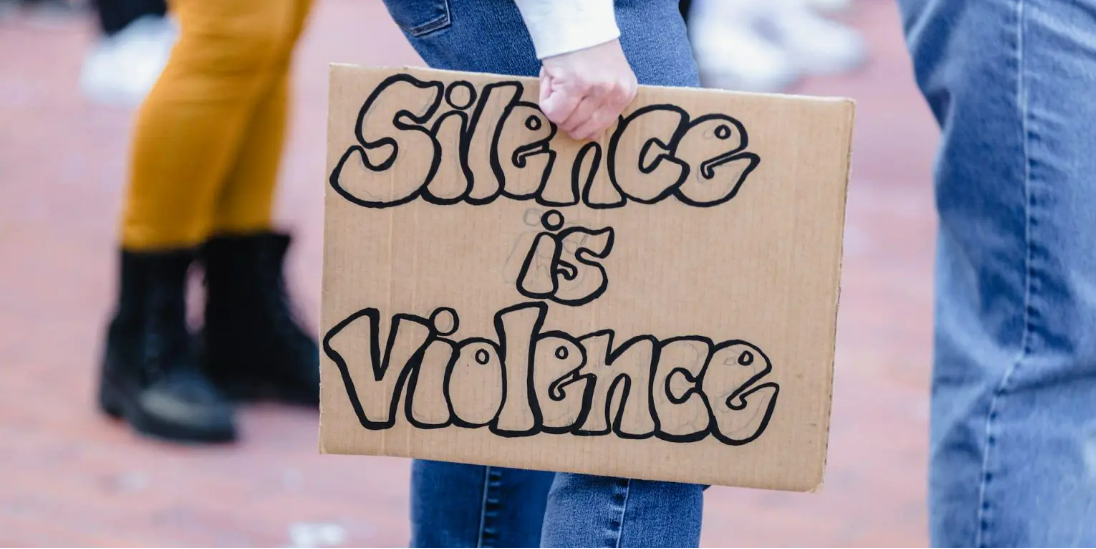The following Op Ed article was created as part of the GBV Provincial Advocacy Groups pre-election campaign and was published in The Hill Times publication on April 27th, 2025:
BY ERIN LEE, JULIE LALONDE, HEATHER MCGREGOR
Intimate partner violence is widely understood to be an epidemic in Canada. It represents a very real threat to our collective safety, and must be addressed as the public health emergency that it is.
Elections are a time to tell political leaders and the candidates who are asking for our support, what matters, what we care about, and what kind of country we want to live in. Political parties tell us that our safety and security are defined in relation to political and market forces largely controlled beyond our borders, and existential threats emanating from a bully to the south.
But for many, the very real threat to their economic security and physical integrity is more dire and much closer to home:
- 182 women and girls were killed by violence in Canada in 2024. That includes the killings of Indigenous women, girls and Two Spirit people, which Indigenous leaders and a national inquiry have named as genocide.
- More than six in 10 Canadian women aged 15 to 24 report having experienced unwanted sexual behaviours in a public place in 2018.
- 44 per cent of women and girls who have been in an intimate partner relationship reported experiencing some kind of abuse in the context of that relationship.
Intimate partner violence is widely understood to be an epidemic in Canada. One hundred Ontario municipalities and several provinces officially recognize gender-based violence as a public health emergency. We should never underestimate the risk posed by world leaders who bully other states to serve their own political agendas, but make no mistake, the imposition of tariffs and the threat of making Canada the 51st state are not the most imminent sources of harm facing people in Canada.
Gender-based violence is fundamentally intertwined with public safety. This so-called “private” violence represents a very real threat to our collective safety, and must be addressed as the public health emergency that it is.
Earlier this month, a coalition of advocates, activists, and frontline agencies in the fight to end gender-based violence wrote to each of the federal party leaders. We asked them to commit to going beyond a narrow law-and-order response to gender-based violence—which we know does not work—and commit to taking three simple but important actions, should their party form government:
- Formally declare intimate partner violence an epidemic
- Establish a gender-based violence commissioner
- Fund and sustain the solutions
Only two of the five major parties responded to our letter.
The Liberal Party responded, confirming their commitment to ending gender-based violence and promised to maintain the government’s investments in the National Action Plan to End Gender-Based Violence. They have also pledged to implement a series of criminal law measures aimed at addressing hate-motivated killing, including femicide, the non-consensual distribution of sexual images, and the perpetration of violence, including intimate partner violence, using firearms.
The NDP also responded and fully endorsed all three of our campaign calls, recognizing that meaningfully addressing gender-based violence requires a co-ordinated and funded approach. Although the NDP highlighted some approaches embedded in strengthening the criminal law framework, the party’s response crucially acknowledged the need for critical supports for the social determinants of public safety, including safe and accessible housing, and primary health care.
Although the Conservative Party did not respond, their platform includes three specific pledges to address intimate partner violence, including the creation of a new offence of “assault of an intimate partner” with tougher sentences, and other criminal code measures.
The Green Party platform also includes a commitment to fund a national action plan to end gender-based violence, to criminalize coercive control—a form of family violence, and an interesting proposal that survivors would no longer face their abusers in court, nor be asked to re-live pain for proof. Instead, they would be met with care: trauma-informed services, protection, and support.
The Bloc Québécois platform confirms the party’s support for women’s equality and tougher sentences for people convicted of intimate partner or family violence offences.
Ending gender-based violence is not a partisan issue, but if we care about safety and security, it absolutely must be a political priority. Because this is a crisis that affects people in every community, across every region of our country, and every political stripe. We believe that all political leaders should agree: everyone in Canada deserves to live with safety and dignity. We can and we must do better to make that vision a reality.
ABOUT THE AUTHORS
Erin Lee, Julie Lalonde, and Heather McGregor on behalf of a coalition of advocates, activists and frontline agencies who are encouraging Canadians to Vote to End gender based violence. Lee is with the Lanark County Interval House, McGregor is the CEO of YWCA Toronto, and Lalonde is with CASA, Canada’s anti-stalking agency, and WomanACT.

Comments are closed